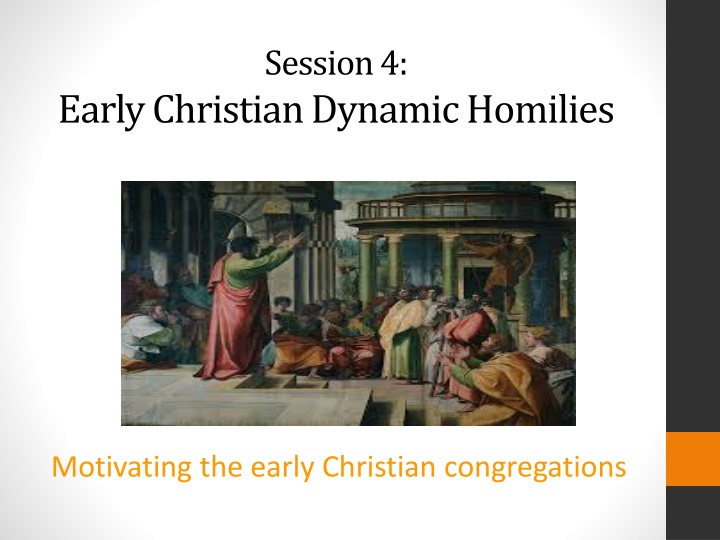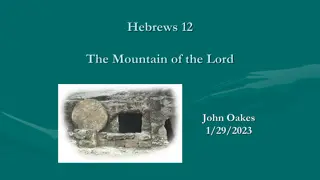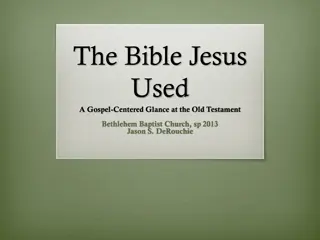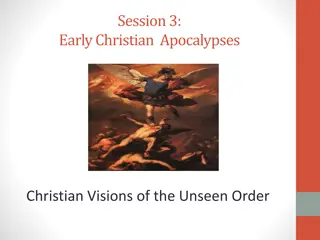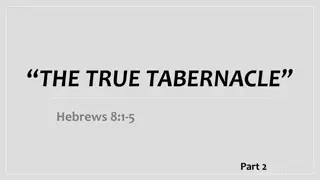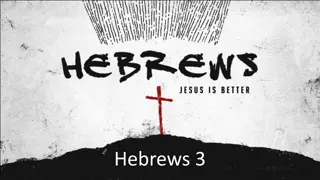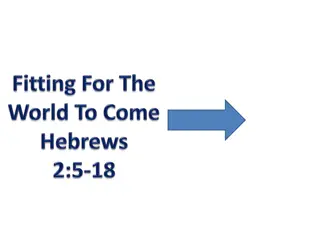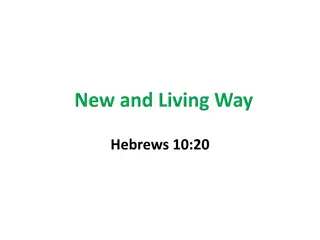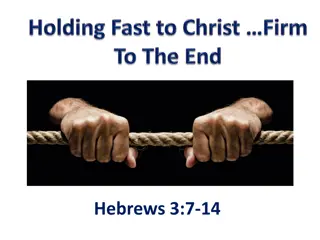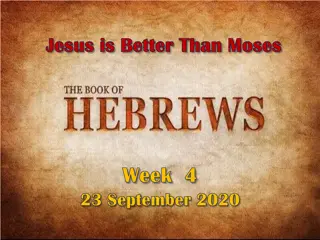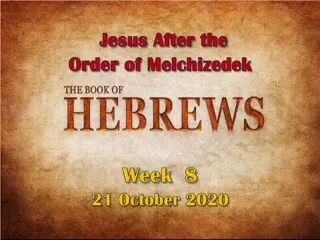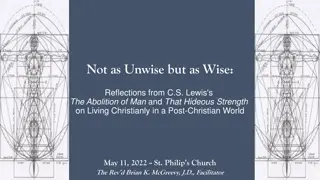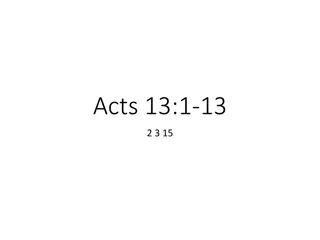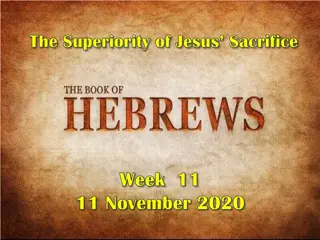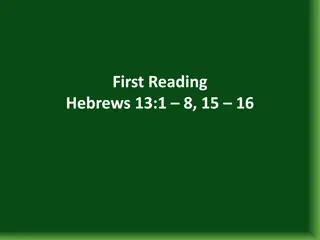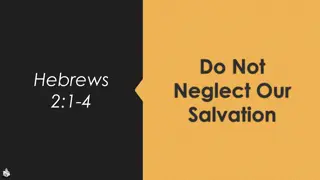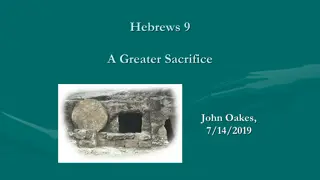Insights into Early Christian Dynamic Homilies and the Book of Hebrews
Explore the origins and impact of early Christian dynamic homilies, focusing on the Book of Hebrews and its unique qualities. Uncover thought-provoking questions for theological reflection, historical context, and the motivating factors behind Hebrews that engaged early believers.
Download Presentation

Please find below an Image/Link to download the presentation.
The content on the website is provided AS IS for your information and personal use only. It may not be sold, licensed, or shared on other websites without obtaining consent from the author.If you encounter any issues during the download, it is possible that the publisher has removed the file from their server.
You are allowed to download the files provided on this website for personal or commercial use, subject to the condition that they are used lawfully. All files are the property of their respective owners.
The content on the website is provided AS IS for your information and personal use only. It may not be sold, licensed, or shared on other websites without obtaining consent from the author.
E N D
Presentation Transcript
Session 4: Early Christian Dynamic Homilies Motivating the early Christian congregations
Early Christian Dynamic Homilies Questions for Theological Reflection 1. Which of your homilies get the best reviews? 2. What makes for a good homily, in your view? 3. Which homilies are most challenging for you to preach?
Early Christian Dynamic Homilies Apostolic Fathers Sources: New Testament Sources: Epistle of Barnabas Second Clement The Book of Hebrews
Early Christian Dynamic Homilies Hebrews shames his congregation into discerning a deeper understanding of Christ. Epistle of Barnabas preys upon the prejudices and fears many Christians held about Jews. Second Clement diffuses the ongoing debate between faith and good works by focusing on reciprocity to God for Christ.
Early Christian Dynamic Homilies Setting the Context .
Interesting facts about the Book of Hebrews It is the only NT writing that has no claim to authorship. . Its Christology is completely unique in the NT. Its manuscript tradition is quite odd.
The historical setting of the Book of Hebrews The author of Hebrews is unknown and there is no claim to author unique in the NT! The intended audience is almost certainly Jewish Christians with a good knowledge of even less prominent Old Testament characters, such as Melchizidek. This homily is plausible datable from 60-90 CE. Heb 13:24 is the clue for place of composition: Greetings to all your leaders and to all the holy ones. Those from Italy send you greetings. This suggests the writing was composed in Italy quite possibly, Rome.
Early Christian Dynamic Homilies . Why was Hebrews remembered? How did it motivate early believers?
Hebrews: responding to sluggish believers The homilist of Hebrews is clearly agitated by the community s apparent apathy and disinterest: You have become sluggish although you should be teachers by this time, you need to have someone teach you again the basic elements of the utterances of God. 5:11-12 . The homilist is openly critical of the congregations behavior: It does not assemble as a community anymore (10:25). It is not upholding its original confession of faith (4:14; 10:23). It not only needs to hear the fundamentals of the faith again, but also reflect further on the Christian message (5:12-6:2). This chastisement sets the stage for Hebrews remarkable Christology.
Hebrews: responding to sluggish believers The Hebrews homilist invites his congregation to serious discernment: Therefore, let us leave behind the basic teaching of Christ and advance to maturity, without laying the foundation all over again. 6:1 . 2 examples of mature theology read every Good Friday as the 2ndreading Therefore, since we have a great high priest who has passed through the heavens, Jesus, the Son of God, let us hold fast to our confession. For we do not have a high priest who is unsympathetic with our weaknesses, but one who has been similarly tested in every way, yet without sin. 4:14-15 Son though he was, he learned obedience from what he had suffered, and when he was made perfect, he became the source of eternal salvation for all who obey him. - 5:8-9
Early Christian Dynamic Homilies Questions for Theological Reflection 1. Which of your homilies get the best reviews? 2. What makes for a good homily, in your view? 3. Which homilies are most challenging for you to preach?
